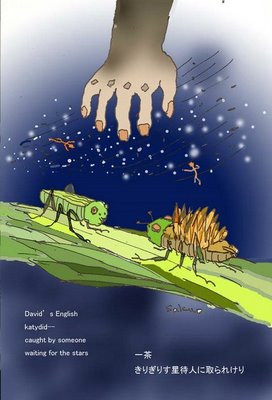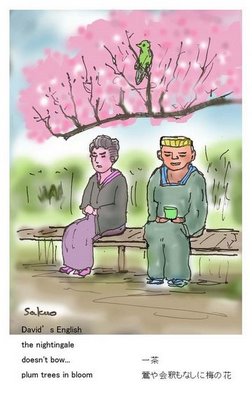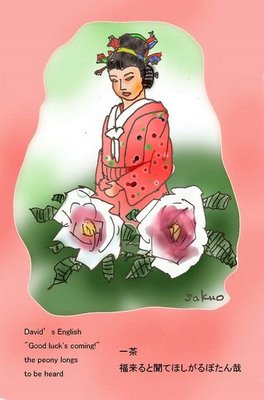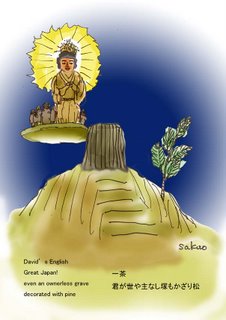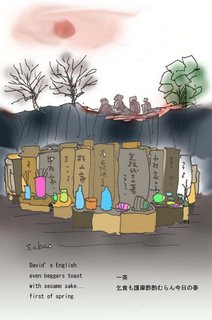 1804
1804一茶
うかうかと盆も過たる灯ろ哉
uka-uka to bon mo sugitaru to^ro^ kana
David’s English
the Bon Festival
flickers out too...
Lanterns for the dead
David’s comment http://cat.xula.edu/issa/
Uka-uka to is an old expression meaning (1) not at peace or (2) thoughtless or absentminded; Kogo dai jiten (Shogakukan 1983) 182. In this case I am assuming that Issa is using the first meaning: the lamplights flicker restlessly as the festival ends. The Bon Festival of the Dead takes place in Eighth Month in the old lunar calendar. At this time, people light lanterns to guide their ancestors' spirits back home.
sakuo Renku
1804 Age 42, lived in Edo. His father died before 3 years.
His works began to get reputation in Edo. But he though that
he have to come back to the native village as the successor.
故郷恋し江戸にも未練
furusato koisi Edo nimo miren
longing for native village
still attached to Edo



